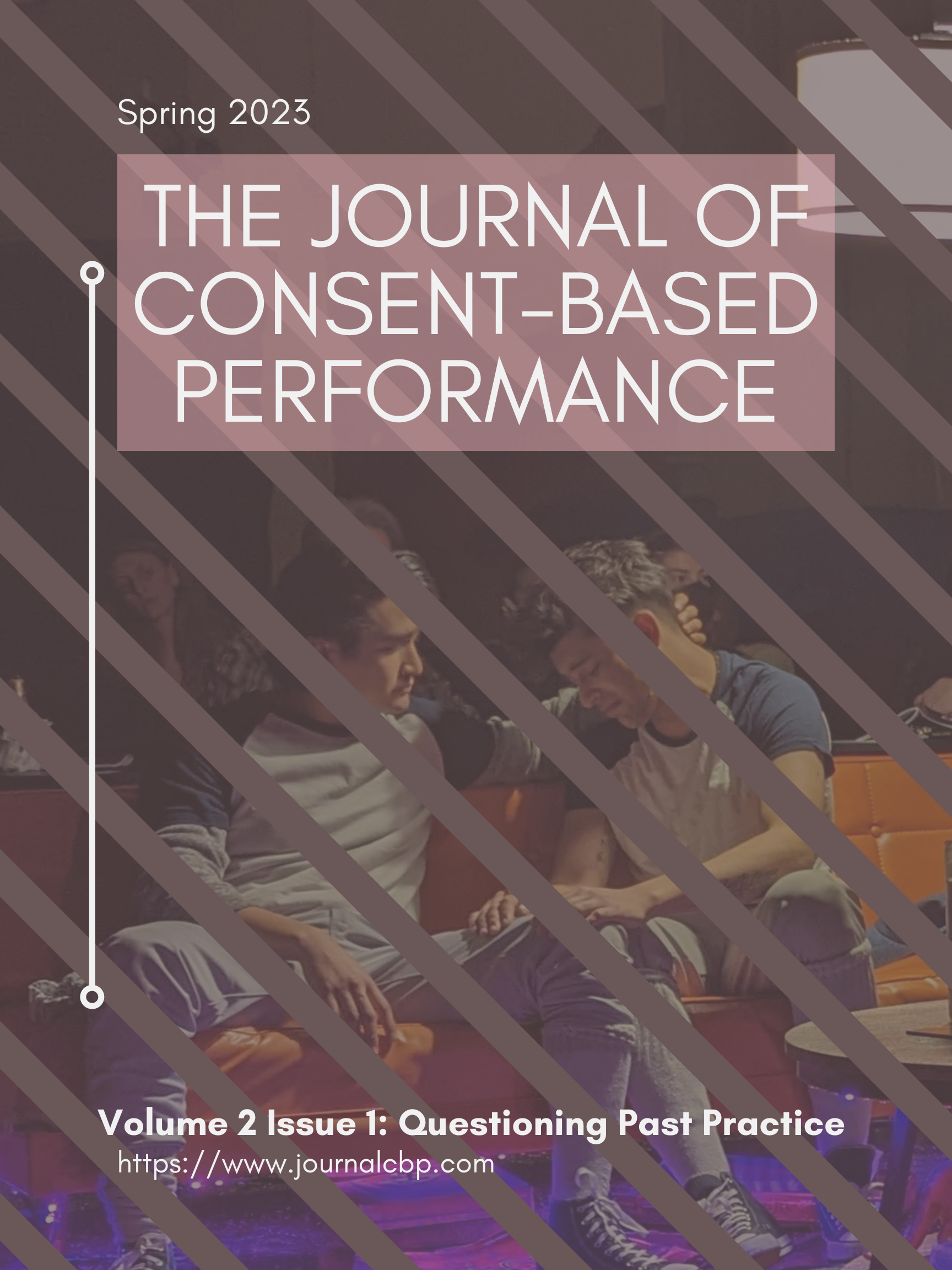Curatorial Directing and Actor Agency Consent-Based Practices for Digital Performance
Main Article Content
Abstract
In lieu of an abstract, here is an excerpt:
recognition that digital performance will remain as a practice far beyond the pandemic, and in response to Rikard and Pace’s call for theatre educators to reconsider what consent looks like in on-camera classrooms, this article engages with the genre of digital performance that W.B. Worthen’s analysis of performances created during the pandemic names as “Zoom Theatre” (2021). Worthen highlights Zoom Theatre as “the defining genre of theatre during the pandemic,” describing this genre as that in which “actors in different places all perform live, but remotely, typically from their homes, gathered on a screen” (183). Due to this merging of liveness and digitally captured performance, intimacy practitioners engaging with this form of performance need to consider ways in which intimacy choreography and intimacy coordination must merge. This article focuses on the ways in which the framing of Zoom Theatre can complicate Laura Mulvey’s concept of the Male Gaze (1975), introducing the concepts of agentic framing and curatorial directing as tools for creating consent-based performance within the unique contexts of Zoom Theatre.
Article Details
Authors retain copyright of submissions to and publications while granting JCBP a non-exclusive CC-BY-NC 4.0 license.

